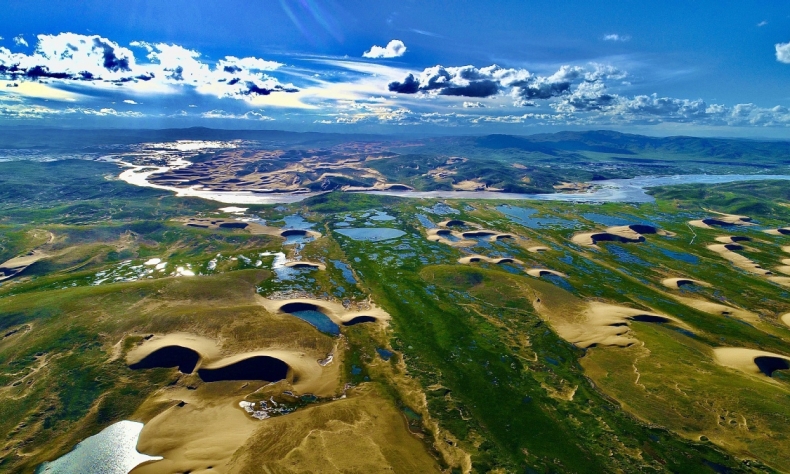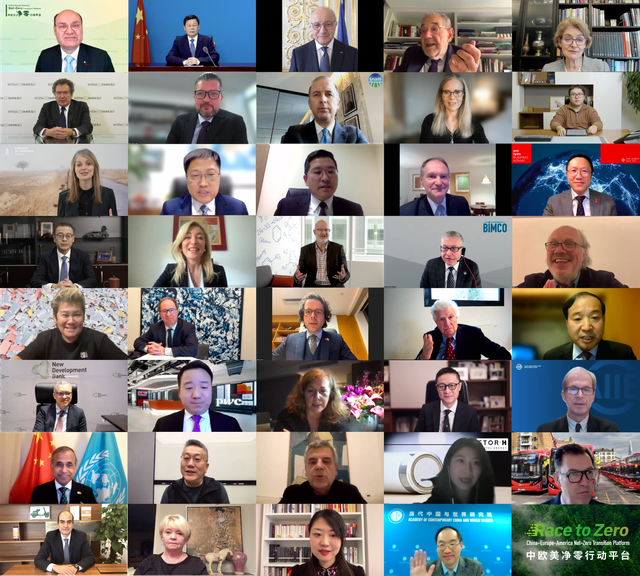China-Europe-America Collaboration Essential for Global Carbon Neutrality

When China, Europe and the U.S. work together, they can solve the most complex problems and contribute to the advancement of humankind.
“Environmental challenges are not a figment of our imaginations, but a key issue of mankind’s future,” Laurent Fabius, former French Prime Minister and one of the leaders who helped make the 2015 Paris UN Climate Change Conference a success, said when pointing out what is at stake at a recent webinar.
Fabius stressed that efforts should focus on the near future, particularly on the next UN climate change conferences, because climate action is a race against time. He added that the status quo is not a cause for pessimism but, on the contrary, a call for more ambitious and urgent actions.
The webinar, known as the first dialogue of the China-Europe-America Net-Zero Transition Platform, took place on December 20–two months after the UN Climate Change Conference in Glasgow, and gathered 40 speakers from 10 different countries.
As part of the China-Europe-America Global Initiative, it highlighted the importance of partnerships between governments, the private sector and civil society.

In the words of David Gosset, founder of the China-Europe-America Global Initiative, “when China, Europe and the U.S. work together, they can solve the most complex problems and contribute to the advancement of humankind.”
Other participants echoed their calls for international cooperation and partnerships.
While noting China is intensifying its efforts to address climate change, Du Zhanyuan, President of China International Communications Group, expressed his hopes for the world to uphold multilateralism in the battle as well as for other countries and regions, especially Europe and the U.S., to take prompt and effective steps to fulfill their commitments and ensure the global goal of net-zero emission is achieved on schedule.
Javier Solana, former High Representative of the European Union for Foreign Affairs and Security Policy, connected climate change with security. “One of my main worries for the future of humanity is whether we will be able to cooperate in tackling the climate crisis–the greatest threat to international peace and security,” the former top EU diplomat said.
Gian Maria Gros-Pietro, Chairman of Intesa Sanpaolo, explained the importance of green finance in the transition toward sustainability.
Gros-Pietro, leader of one of Europe’s largest banks, clarified, “Financial institutions will have a primary responsibility for channeling private and public savings, market and sovereign financial resources, toward sustainable goals.”
Despite all the difficulties, progress is being made on the path to a greener economy, Joan McEntee, former Under Secretary with the U.S. Department of Commerce, said.
China and the U.S. issued a joint declaration on enhancing climate action in the 2020s on the sidelines of the UN Climate Change Conference in Glasgow on November 10. They promised to collaborate in areas such as regulatory frameworks, green design and renewable resource utilization, while agreeing to set up a working group to advance bilateral and multilateral climate cooperation.
 Facebook
Facebook
 Twitter
Twitter
 Linkedin
Linkedin
 Google +
Google +










